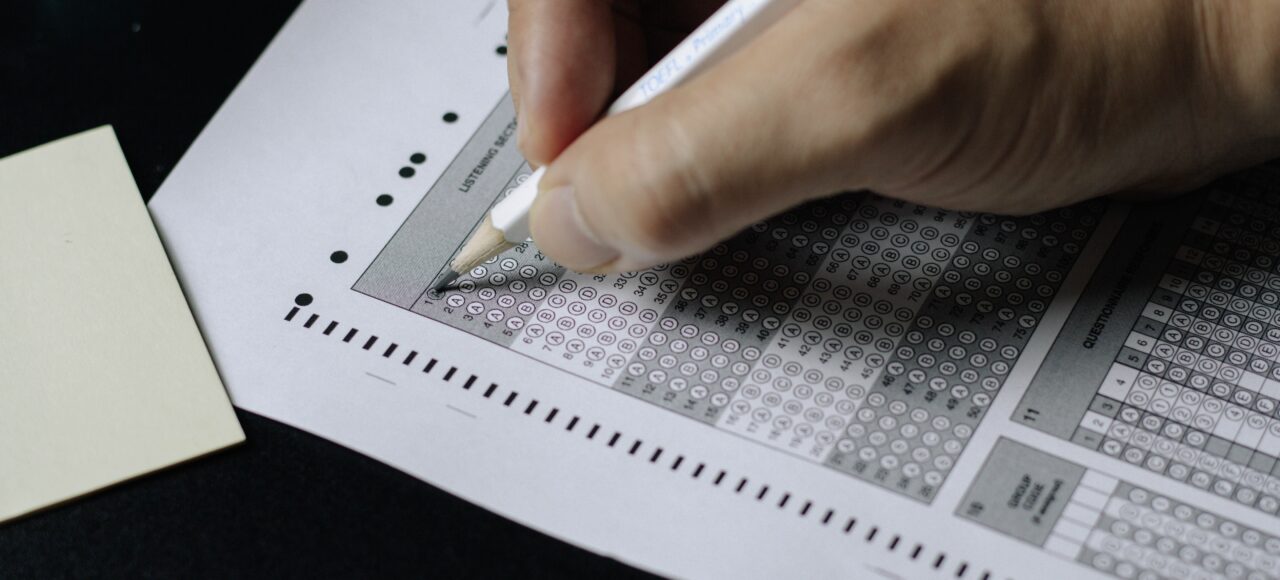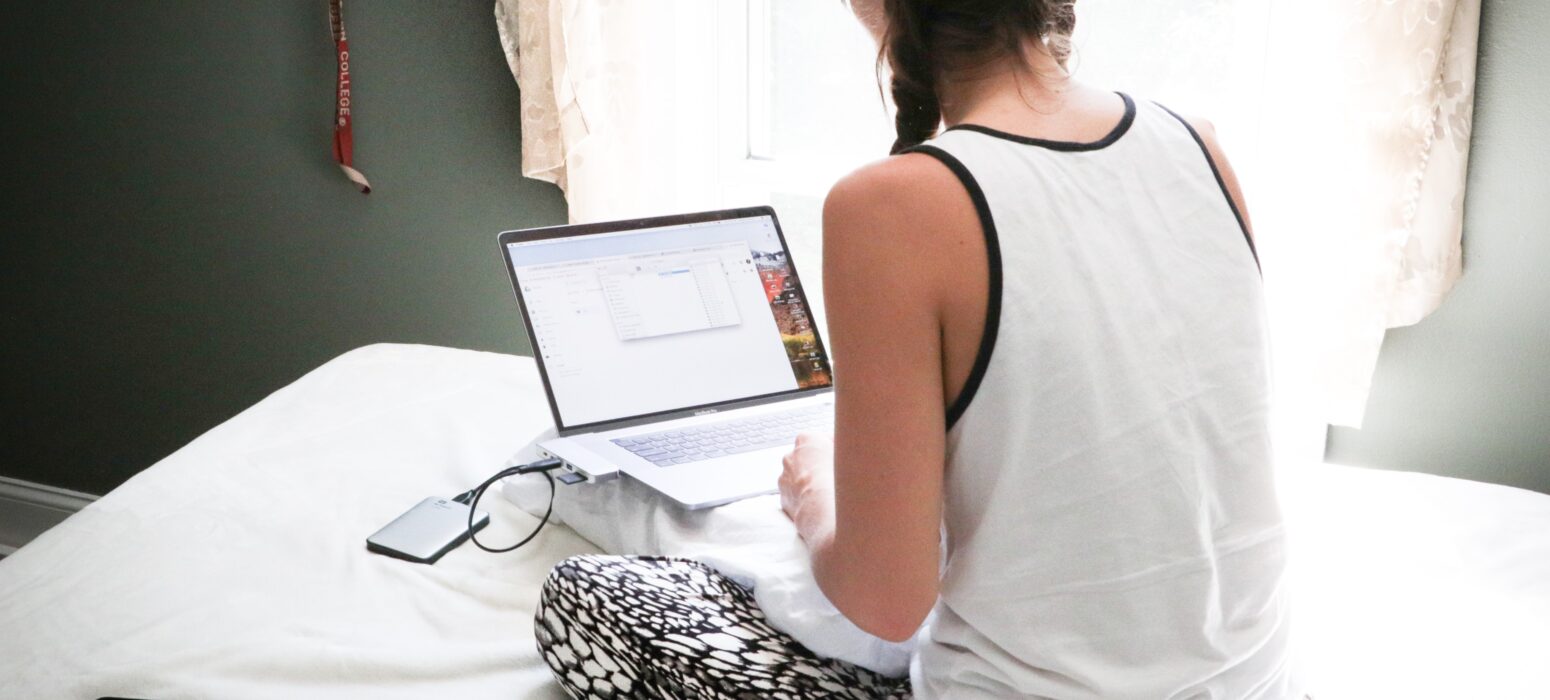
Why Accommodations for Online College Students Matter
Online college is often considered a more disability-friendly choice than many traditional schools. It’s more accessible, easier to enroll, and allows students to stay home. Indeed, they don’t have to worry if their dorm, classrooms, or other campus buildings will be able to accommodate their specific needs. However, many students still need additional resources to be successful in their programs. Accommodations for online college students often take the form of screen readers, live lecture support, or hardcopy books.
It’s just as important for colleges to provide reasonable accommodations as it is for students to receive them. Notably, just like traditional schools, online schools see higher grades, success rates, and graduation rates when they provide accommodations. And students often report higher satisfaction and feelings of being seen when their schools help them with their needs.
However, online school students sometimes struggle to figure out what kind of accommodations are considered reasonable for their studies. For example, asking for zero due dates throughout your entire program is not reasonable. Accommodations are meant to help students make progress and stay on track, and such a request goes against their purpose. Also, colleges must abide by the standards they and their accrediting bodies set. Financial aid providers like the Department of Education and the VA don’t want to see students who are fifteen weeks in with no work submitted.
Thankfully, most schools today offer some information online about what they can provide, but colleges can’t list every option available. The list would be endless. Thus, the most important thing for students to do is talk to the Disability Services office when they recognize they need help.
Different Types of Accommodations for Online College Students
If you’re looking into studying online and feel that you need accommodations, your first step should be gathering information. Majorly, your focus will be on yourself – your conditions, needs, and wants – and the available technology. First, gather relevant medical documents. Most universities require documentation before they’ll talk to you about accommodations. You might also want to contact your doctor and see if they’ll help you draft a letter to the college expressing your needs.
Next, take a moment for introspection. What would help you succeed most in a class? Does it involve lectures, readings, assignments, or tests? Try to figure out the best way to communicate those needs so you can talk to Disability Services about specific accommodations. Otherwise, you might not end up with all you need from the school.
Finally, consider what’s possible. Technology is always evolving. Accommodations for online college students and traditional students have changed and grown with time, but not every request is doable. Many schools are still constrained by their software and budget. Notably, not every accommodation is not within a college’s control, especially when third-party technology is in use. But if you’re unsure if something is possible, just remember that it never hurts to ask.

Extensions and Extra Test Time
One of the most common accommodations for online college students is extra time for lessons. These extensions are often used for assignment due dates and test-taking. Majorly, instructors are required to provide lenience on grading if a worksheet or essay is submitted late or allow students extra time to complete quizzes and final exams.
Notably, allowing more time for taking tests can be tricky in the online sphere. Some schools have elected to provide a large amount of time for every student, such as giving everyone three hours to complete a twenty-five or fifty-question test. The majority of the class may complete it within thirty minutes to an hour, but everyone has the option to recheck their answers and think about their responses.
However, this longer timeframe doesn’t help students who need breaks between sections. Most online colleges use remote proctoring software, which can’t be altered on the school’s side. The instructor is limited to the rules of the proctor service. Thus, those three hours often account for a single session, meaning people can’t minimize the screen or step away for an extended period. Students with ADHD, cognitive disorders, or other diseases that involve flare-ups aren’t always able to sit that long.
In cases like those, students may be able to request a live proctor. Live proctors may be willing and able to divide a final exam into multiple sessions or allow students to leave to tend to medical needs during the test. Always check with Disability Services to find out what’s possible.
Hardcopy Materials
Another one of the more common accommodations for online college students is a request for hardcopy materials. Notably, most students with disabilities prefer electronic copies as they are more accessible. But some individuals have more success with hardcopy textbooks.
By default, many virtual schools provide e-books and digital materials in place of physical ones. No paper handouts are being mailed out to everyone in the class. If a student needs hardcopies to succeed in the course, they can request help from Disability Services. If your school includes your books in the cost of tuition, then they may be able to provide physical textbooks at no additional cost to you.

Alternative Status Messages
Almost every online school is required to send you regular notifications about your academic performance. What this communication looks like depends on the institution. Lakewood University divides its students’ statuses into three simple categories: Satisfactory, Unsatisfactory, and Unacceptable. Students on track are Satisfactory, students who are a little behind are Unsatisfactory, and students who are far behind are Unacceptable. Another institution may use phrases like On Track, Academic Probation, and so on.
Of course, most students will feel some degree of stress from being in the Academic Probation or Unacceptable status. It often involves the threat of academic dismissal or suspension. But most will not feel extreme or dangerous levels of stress or anxiety as a result of receiving such communications.
However, students with severe anxiety disorders, depression, PTSD, or other mental health disorders may have an extreme reaction to such language. An individual institution might be required to inform students of such status changes, but they can deliver the news in an accommodating way. Thus, reasonable accommodations for online college students may include a request for alternative language. Notably, staff might call a student for a meeting rather than send an email.
Recorded, Live, or More Specific Instructions
Students may also ask Disability Services about getting more specialized help from instructors. Depending on the institution, how reasonable this request is may vary. Remember, online college teachers may live on the other side of the world or country. They may have regular day jobs. They don’t live the same lives as traditional professors. Thus, personalized live lectures might not be possible. Instead, you may ask for more detailed instructions on specific assignments – which you should not need an accommodation to receive – or recorded videos on a certain topic.
Sometimes, you may be referred to the tutoring center if your instructor is not able to accommodate your needs for whatever reason. If they live in a twelve-hour time difference and have a day job, they might not be able to swing it. In these cases, the college’s tutors will fill the gap. You’ll get one-on-one assistance for no additional cost that will help you succeed.

Alternative Assignments
Some students may have needs that prohibit them from completing certain assignments. When looking at accommodations for online college students, Disability Services will often focus on presentations. For example, some deaf students might not be able to record an oral presentation. Or a blind student may struggle to create a visually engaging slideshow. This issue should not be put on the student nor should they receive lower grades for not being able to fully engage with the instructions. If instructors and the school want to keep such an assignment, then they should also have an alternative assignment on deck.
A deaf student may be able to present their speech in sign language with a written script or with a translator to assist. Similarly, a visually engaging slideshow could be replaced by an essay or an oral presentation. Basically, these accommodations allow students to use their strengths and show their understanding differently.
There is no one right way to learn or express knowledge, and students shouldn’t be cut out of a course or program because of how an assignment is designed. Your instructor may be able to create an alternative assignment on their own. But you should speak to someone in Disability Services to guarantee your needs are met.
See What’s Already Available
If you need mainly audio or mainly visual instruction, see what resources are already available. Assistive technology can be found on almost all websites. There’s a good chance that your e-book, classroom, or software has a text-to-speech function or is compatible with a screen reader. And video lectures posted on sites like YouTube have generatable subtitles. You should also be able to change the text size of most readings and documents. Indeed, these are less often accommodations for online college students and more often basic features for most platforms.
Of course, if your college has video lectures or supplemental learning material without subtitles, never hesitate to ask for this accommodation. Not only will it help you get through the course, but countless students after.

What if They Say No?
What one school considers reasonable, another may consider going above and beyond. Sometimes, Disability Services might not be able to give you everything you need. We recommend deciding what accommodations are necessities and which ones are preferences. If a school cannot or refuses to meet your needs, they might not be the right fit for you.
Thus, you should reach out before you enroll, not after. Consider speaking to Disability Services as part of your application process. Most schools provide the office contact information online, and you should take advantage of it.
Of course, not all disabilities, injuries, and other precursors for accommodations exist before enrollment. If you require accommodations in the middle of your enrollment and your school cannot help, you may need to consider your options. Are you still able to finish? Can you transfer without losing time and money? Also, always check if there’s someone else you can talk to in Disability Services.
Accommodations for online college students allow everyone a chance to succeed and achieve their goals. In the United States, schools are required to provide reasonable accommodations. Don’t let anyone tell you otherwise or stop you from achieving your dreams.
Final Thoughts
Lakewood University is an accredited online school that offers a variety of degree and certificate programs. We have rolling enrollments and asynchronous courses. In other words, you don’t have to worry about missing a lecture or running late to class. If you plan on enrolling in college while working, Lakewood University offers the flexibility you need to earn your degree.
Don’t hesitate – reach out to our admissions department today to learn more!




